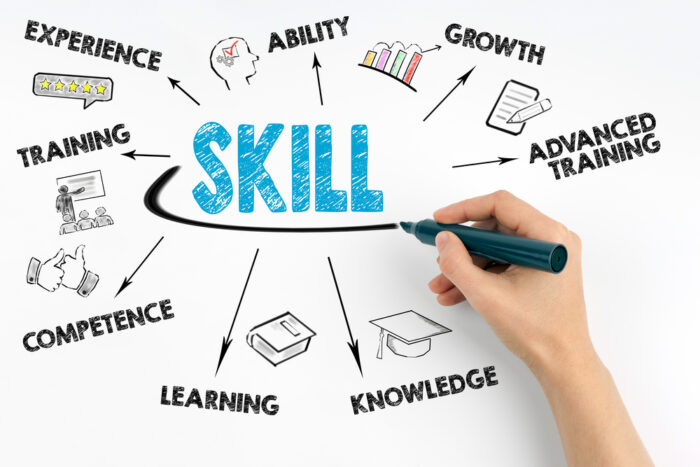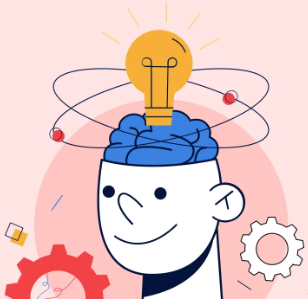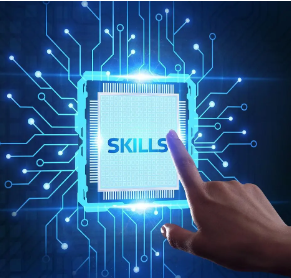
Being a step ahead of the competition is essential for those who intend to prepared for the future your profession in the quickly changing digital era of today. As a result, success is not the same for everyone. The workplace of the future will need a certain set of critical abilities in order to prosper as new technologies arise and transform sectors. Additionally, acquiring useful future skills for successful career helps to open as many doors to opportunities as feasible.
It’s important to learn and develop the necessary future skills if you want to make sure that you have a competitive advantage in this dynamic environment. Therefore, in order for professionals to stay at the forefront of the field of talent, we will examine the skills that they should focus on developing in this blog.
Critical Thinking

Having the ability for independent thought, in-depth problem-solving analysis, and creative problem solving is essential in an age when automation handles tasks that are repetitive. When creativity is combined with critical thinking, people may approach problems from fresh perspectives and come up with innovative approaches and insights that robots cannot imitate. You will need to have the capacity for realistic and significant independent thought because it is evidently self-directed and self-disciplined. Furthermore, in order to pass significant tests, this generation of students will need to do more than just take notes and retain knowledge. Education aimed at fostering independent thought and problem-solving skills will be necessary. The students of today and the leaders of tomorrow will only benefit from early development of this skill.
Adaptability

Adaptability is a key characteristic that will be required for success in the workplace of future. Being adaptive is crucial in the fast-paced environment we live in. In the workplace of the future, agility in adjusting to new situations, accepting change, and navigating ambiguity will be highly valued. Especially for a team whose experts are willing to try new tools and technologies in order to keep up to date with the latest developments in the industry, flexibility is a crucial competitive advantage in an era where technology is developing at an exponential rate. For most students as well as professionals, navigating developing technology is a daily task. In the long run, this can make life simpler, but it frequently results in different situations.
In addition, an organization will want to keep you on board in the long run if you can adjust to changing settings, procedures, and technological advancements. One of the numerous changes the next generation of workers will encounter in their typical work culture has to collaborate directly with a coworker who lives in a different time zone. It will be up to the future generations to adjust or risk falling behind.
Digital Skill

In the future, one of the most in-demand talents will be proficiency with digital technologies. By the year 30 years from now, about half of all occupations worldwide will require digital skills in order to remain in employment. This implies that there would be an essential requirement for those with digital skills and platform expertise. Consequently, it is now essential rather than optional to have a strong grasp of technology in this age of the internet. Being adept at using technology is crucial for success in almost every field, from fundamental computer literacy to advanced understanding of software, programs, and digital tools. To improve your digital abilities, stay current on the newest publications, news, and trends in the e-learning sector.
Businesses are quickly making use of technology to assist automate a variety of operations; experts are left to handle this technology and concentrate on the portions of the work that call for human interaction. In addition, there has been a notable shift in the professional sector towards digital in the past several years. This has brought attention to the necessity for employees to acquire digital skills that will enable them to adjust to online training as well as new hybrid work techniques.
Communication

Both in terms of person as well as online, an effective communication is essential. In order to succeed in these, the future generation will at times have to take the lead in discourse. In a professional situation, having effective communication skills facilitates things for all parties involved. It should go without saying that there are two sides to every conversation. Consequently, it’s critical to pay attention to what others are saying and to how they respond. Your ability to reply diplomatically, build rapport, and engage in deeper discussions will all improve.
This represents only one of the several situations that could necessitate people to develop their varied skills and learn the way to communicate through new channels. Naturally, one of the most valuable abilities that will be in demand in the future is good communication. The capacity to communicate clearly across written, digital, and face-to-face mediums is the definition of this competence. Furthermore, having the ability to listen intently, speak properly, and work with various teams will be essential as the workplace grows increasingly global and linked. To work well with partners and coworkers, strengthen your personnel skills and make use of technology channels.
Leadership

Effective leaders understand the strengths and weaknesses of their teams and know how to get the best out of people. You may succeed in all facets of your job by developing dynamic leadership abilities. It is possible to manage individuals towards a common goal of commercial success by having the fundamental abilities of leadership. Leading your team or assigning tasks to them is not the goal. When required, it entails setting an example and accepting responsibility.
A leadership skill is becoming more and more advantageous, whether one is an entrepreneur or works for a major organization. This way of thinking includes being willing to innovate, take measured chances, and move projects ahead. It entails a proactive attitude to problem-solving, an unquenchable thirst for knowledge, and an emphasis on adding value. This skill set entails having a deep awareness of situations and the difficulties they provide, which enables you to see fresh chances. After that, it comes down to assuming the right amount of risk and providing the market with fresh value. These are going to be crucial in laying out your future. You may use it in little ways, like coming up with creative solutions for challenging tasks at work or starting brand-new projects, or you could take a risk and try something different.
Conclusion
To sum up, the nature of work is changing quickly, and it’s critical to keep up with the changes. Consequently, developing your own abilities is essential to succeeding in the workplace. You can prepared for the future of your profession by embracing adaptability, improving your digital literacy, developing interpersonal abilities, and making a commitment to lifelong learning. Remember that your capacity to learn, adapt, and develop will be essential to your success in the workplace of the future, regardless of your age—young or experienced.
Formal educational institutions, internal or external training programs, as well as informal training methods like enrolling in online courses that are free as well as working one-on-one with a manager or mentor, can all help you develop your abilities. Employers are now looking for candidates with potential just as much as those with experience and strong skills. Employers start to demand more from their employees as the workplace evolves, especially the ability to adapt to new situations and take on difficulties with ease. Even though it will be worthwhile in the end, staying up to date on skills that are in demand might take time. Your current skill set might not be adequate for the job of the future.




